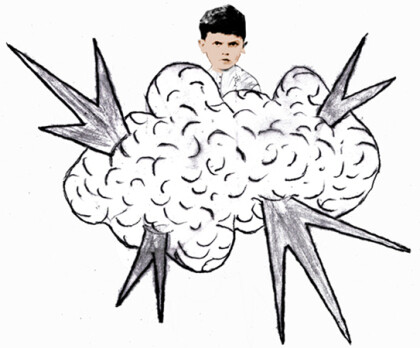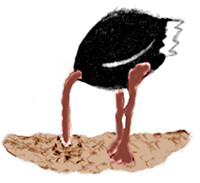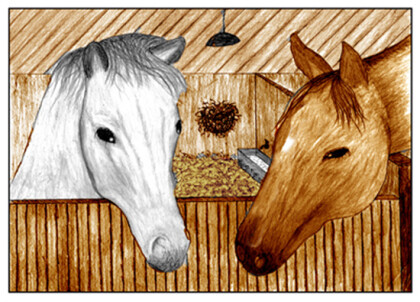Step into the Rainbow, Colin R Brookfield [top 10 most read books in the world .txt] 📗

- Author: Colin R Brookfield
Book online «Step into the Rainbow, Colin R Brookfield [top 10 most read books in the world .txt] 📗». Author Colin R Brookfield
where puddles deep were lying.
Jimmy had new ‘wellies’ on
and ‘wellies’ needed testing,
so in he went and jumped about,
his legs weren’t meant for resting.
The water splashed upon the walls,
then on the armoured cable
and then upon the iron box
that soon became unstable.
Jimmy hit the pavement,
he was blown, or did he jump,
but thick black smoke was billowing
so he clambered off his rump.

Escape was now important
so he quickly left the scene,
the mark of Cain was on him,
the fates were being mean.
His naked parts were scarlet,
the hair was singed and hard,
the clothes had suffered quite a bit,
the Dandy badly scarred.
Weeks went by, the ‘scarlet’ went
the stutter took its time,
the cigarettes survived the test
and Jim outlived his crime.
Step into the Rainbow
Dissertation and accompanying verse
In 1997, I stood for a while amongst the ‘Great War’ craters and trenches of the Somme, beneath which many still lie unfound, those that were, are now but acres of sad little white crosses. Had it not been for that quiet interlude I may not have had the resolve to publish some of my more meaningful material, although by not doing so I feel that I would have been lending tacit support to the next generation of ‘sad little white crosses’.
We write poetry to express our feelings, observations and abstruse explorations. In many instances my poetical attention is directed towards those aspects of human nature that persistently undermine its higher qualities and are therefore socially pathogenic. I am of course referring to those anomalies that litter our daily acceptances, those incongruous abstracts that bring some of our perceived rationales into question and taint many others.
Amongst these anomalies are some that I feel require special attention. They do so for reasons of their collective effects. For the evidence of history informs us quite clearly that there is little general understanding of these negatives or their deeper workings. It is for this reason we are fated to be history’s repeaters, the latter-day ‘bit players’ in that eternal tragedy so frequently referred to as the unlearned lessons of history.
There is no doubt that much of mankind carries erroneous beliefs, and, of course, false beliefs generate distortions. In particular, these distortions affect the perceptions and expectations of our own kind and in consequence our dealings with them. It is due to these attitudes that so many people will inevitably make a personal input into history’s unwanted cycles of events and in many cases not even be aware they are doing it.
It is our evolutionary bind, that the ‘feel good’ factor attached to any fictions that we carry will always rebound unpleasantly upon us and others when we treat them as realities, and of course fictions are most assuredly the fodder of manipulators.
One of the constant surprises in modern and supposedly enlightened times, is that much of mankind is still quite unfamiliar with some of the most transparent causal influences behind the installation of tyrannical regimes, of which Hitler, Stalin and Mao Zedong quickly spring to mind. These regimes, like many others, secured their positions through a combination of convenient events. But these happenings seldom, if ever, take place in isolation, because the events will have received contributions from those (for reasons of personal gain) whose place of origin was firmly rooted within other national boundaries. However, if we really want to confront the unacceptable, then we must look closer to home, for there is not the slightest doubt that it is the rhetorical play upon the ingenuousness within each respective populace that really lays the groundwork by which these despotic regimes install themselves (commonly referred to as ‘the back door’ method).
The classic style by which the positions of such regimes are then consolidated is by the door of opportunity that is opened for all that is perfidious from within their populations. It is from these elements that bad history’s latter-day foot-soldiery emerge. They will swarm as they always have, to the advantages of one occasion and dissipate to the disadvantages of another, sinking back to the anonymity that more settled times bring along.
Each time we hear of another dangerous, yet far away regime upon our world, it becomes so easy from our seemingly safer place, to feel ‘Holier than thou’.
My reason for raising these matters is that these incessant eruptions of human negativity are, in truth, the mirror image of the negative potentials that exist within each and every one of us. It is simply the arrival of opportunistic conditions that determines when or where these human negatives will next express any one of their varied forms. There is no place upon this Earth where the door is fully closed to these unwelcome guests and open doors are open invitations.
If we harbour any ambition to become wiser about ourselves and about others, then there is but one possible route through which it can be done. It is accomplished by means of that essential journey into reality. The one that takes us into those dark places within the abyssal depths of the human psyche, its understanding provides us with our navigational skills without which we will be like so many of our forebears and become history’s ‘flotsam’ upon the human tide of events.
Reality keeps reminding us that we are not all ‘wonderful people’, some are and some will never be. To become even better people than we might already be, will inevitably require that our focus of attention should be upon those that are less than wonderful, otherwise we will have little hope of drawing more qualities of human understanding into our lives (the Dante journey).
In saying this, I should emphasise that my main focus is not so much upon the typical villainous activity that fills our daily newspapers (that speaks for itself) but more upon the subtle, understated and therefore unaddressed historical delinquencies. For this, we need a much greater netherworld understanding of the designing, the strange and the potentially dangerous human beings that exist within all walks of life and in all societies, otherwise in time honoured fashion, we will just stand tacitly or perplexed as to their social interactions, whose powerful social undercurrents are the very storm centres from which so much of our interpersonal and collective aberrations emerge, to close our eyes is complicity.
So hopefully, these explanations will begin to lead us towards some meaning of ‘Step into the Rainbow’.
In terms of archetypal symbolism, the rainbow stands boldly to the forefront, it has found its way into our songs. Mythically it has pointed the way to that elusive pot of gold and perhaps the difficulty in finding that pot of gold was that firstly, it needed to be recognised for what it was.
For that recognition, perhaps we could start by casting our minds back to that ‘young time’ prior to our informed rainbow awareness. Back to that moment when the true significance of the rainbow’s colourful composite parts first dawned upon us. How woefully inadequate had been our former perceptions of that commonplace acceptance that we had referred to as the light of day. Who would have thought it had concealed such an intricate and colourful composition? More to the point, how few would have awakened eventually to the possibilities of that paradigm in its wider sense. By this I mean that in the same way every one of us once belonged outside of that rainbow light of understanding (though in a harmless fashion), far too many of our kind grew older undifferentiatingly thus harmfully outside of that rainbow light of understanding their own species. In consequence of this, they became promotive to the more abstruse machinations of mankind. These are the plain facts reflected by the empirical evidence of historical events. Therein lies the root cause of bad history.
I feel it would further clarify some of these issues of differentiated thought, if we were to use an analogy and consider the workings of our mind in terms of that susceptible wide-screened object that sits upon our desk.
How easily the integrity of its contents can become corrupted. Our installed virus check is ever ready for the slightest sign of a troublesome bug that may have slipped into the system. But consider how aghast we would be at the thought of other people accessing our computer and writing their own dedicated self-serving programmes into it. Yet we so readily or unguardedly do so when it comes to that infinitely more powerful and personal instrument that sits between our own ears. That personnel human computer of ours has the most devastating history of being open house to the installation of other people’s self-serving programmes and distortions of the facts. They represent some of the most corrupting variety of abstract viruses within our mental systems. The strange fact is, that there is little reason why this should be so, considering that all we have to do is press the key and our own built-in virus check gets to work. Our virus check is called differentiated thought, it is our critical factor. By its very nature it is individuating. It is the guardian that stands between us and the corruption of our higher selves. It is whether we see fit to observe or to ignore this function, that will determine what will eventually filter down upon all that we make of life.
By using a rule of thumb generalization, we can put history’s collective transgressions into perspective. For instance we can identify most prominently, two social elements that are fundamental to the reasonable social order being pushed off course. These are elements which are representative of certain human characteristics that are drawn from all points right across social spectra. The first element is coloured by a self-servingness to its psychological distorts. The second social element by way of its unawareness is supportive by default to the first social category.
We have of course previously categorised a third generalisation, one whose influence acts as a bulwark against the first two and the reason that it does so is that its attitudes had been conditioned by its differentiating thought processes. These are the very characteristics to which I refer; as belonging to those that are standing within the ‘rainbow’ of awareness, because it is within this condition that the interacting composite colours and shades of human nature stand revealed for the benefit of their better understanding and better judgements. That indeed is the treasure awaiting those that ‘Step into the Rainbow’.
Same Story
Same Story told in varied ways,
the clearer picture better stays.
Faustian Bargain
History frowns on psychological hegemony,
the compact majority’s cerebral endogamy.
For latter-day composite kind
is thence to surrogated mind,
into the labyrinth beguiled
orchestrated like a child,
a tangled web of tainted choice
to emasculate the inner voice.
A corporate dependant way,
a caricatured overlay,
and its higher politics when properly read
must bring to mind what ‘Hegel’ * said.
“ For that which seeks a third reaction
must induce a first and second faction.”
It is the mutual friction formula
that politics may profit from the interplay.
For every herd goes where it’s sent
and thinks it knows the real intent.
Thus Bovines in the ‘milking shed’
are those that follow where they’re led.
*Hegel = Thesis versus antithesis = synthesis
What Hides from Light
Stones are better turned
to exposures we won’t like,
wishing facts not to exist
will but sustain this blight.

What hides from light unrevealed
must visit us at night.
Ned and Ben and the Great War






Comments (0)